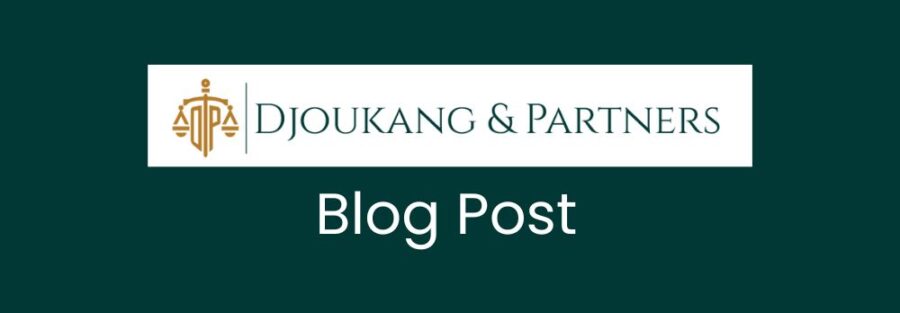A foreign company wishing to set up in Cameroon has the choice between several possibilities: a Branch or a Subsidiary. If the Branch presents certain disadvantages, the Subsidiary could be the one that best suits your project.
As indicated in article 116 of the OHADA Uniform Act relating to the Law on commercial companies and economic interest groups, “A branch shall be a commercial, industrial or a service providing establishment which belongs to a company or a natural person and which has been granted a certain degree of autonomy in its management”. Article 117 of the same text continues by stipulating that, “The branch shall not have a separate legal personality distinct from that of the parent company or the natural person who owns it. Rights and obligations arising from its activities or its existence shall be part of the estate of the company or the natural person who owns it”.
In view of the foregoing, it is clear that the branch, although registered in the Trade and Personal Property Credit Register (RCCM) and enjoying management autonomy, remains a simple operating center attached to its owner without any legal personality.
More importantly, when the branch belongs to a foreign company, within two (02) years of its creation, it must be attached to a pre-existing company or upgraded into a new legal company under Cameroonian law, unless it is exempted from this obligation by an Order of the Minister responsible for Trade. The exemption is granted for a period of two (02) years, non-renewable. In the event of non-compliance with these formalities, the company is deregistered from the RCCM by a decision of the judge (Article 120 Uniform Act mentioned above).
You agree with me that the maximum duration of the branch of a foreign company istherefore four (4) years. Whereas, it appears from our discussions that you intend to settle in Cameroon and in the OHADA region for a much longer time.
It is therefore in consideration of these disadvantages attached to the branch that Irecommend the creation of a Subsidiary.
The foreign company which wishes to fully integrate the Cameroonian market, must create a real subsidiary which will be a company under OHADA law with its own separate identity. It will then be an issue of creating a real legal link between the parent company and its subsidiary in Cameroon. A company shall be the parent company of another where the former holds more than half the capital of the latter. The latter shall be the subsidiary of the former.(Article 179 of the Uniform Act).
By creating a subsidiary, this will involve the creation of a group of companies in which THE PARENT COMPANY may hold all the capital in the latter (subsidiary) as you envisage.
The incorporation of a company by a subsidiary is interesting insofar as it can receive support from the parent company, in particular by guaranteeing its commitments (surety, letter of intent, etc.) or even cash advances. Unlike the branch, the subsidiary has its own legal personality, distinct from that of the parent company.
For the implementation, the choice remains open between a capital company and a partnership. Since partnerships do not limit the liability of its partners, we strongly recommend that you create a capital company which may take the form of a private limited liability company (Ltd), a public limited liability company (PLC) or a simplified joint-venturecompany (SAS).
But we recommend a private limited liability company (Ltd) insofar as it presents a mode of creation and simplified management and the partners are responsible for the social debts only up to the amount of their contributions. Indeed, the Cameroonian legislator following the revision of the aforementioned Uniform Act in 2014, has, by two texts, simplified its creation. These are Law No. 2016/014 setting the minimum capital and the procedures for using the service of the notary in the context of the creation of a private limited liability company and Decree No. 2017/077 PM of February 28, 2017 setting the methods of authentication of the statutes of the private limited liability company drawn up under private signature.
Management is simplified insofar as the powers of the manager are wide. Indeed, in relations between members and where the Articles of Association do not define the duties of the manager, the latter may perform all managerial acts in the interest of the company. (Article 328 paragraph 1 of the Uniform Act). In relations with third parties, the manager is vested with the broadest powers to act in all circumstances on behalf of the company, subject to the powers that the law expressly attributes to shareholders.
The subsidiary will be subject to the tax legislation of Cameroon both for its creation and for the profits it will make.
Regarding the creation, it will be necessary to deposit the capital, the minimum of which is set at 1,000,000 (one million) FCFA; It will also be necessary to provide for the incorporation costs of approximately 1,000,000 (one million) FCFA which represents the registration fees, the RCCM, disbursements).
With regards to profits, the tax regime depends on the annual turnover of the company. In this respect, four regimes can be distinguished as follows:
In terms of indirect taxes, simplified taxpayers are subject to the payment of a businesslicense. In addition, companies subject to this tax regime owning land, built or not, in their name are subject to the payment of property tax at the rate of 0.5% on the value of the land and buildings it owns.
Cameroon is a member state of the Economic and Monetary Community of Central Africa (CEMAC), of which the Bank of Central African States (BEAC) is the central bank. In this regard, the exchange is regulated through Regulation No. 2018/CEMAC/UMAC/CM on the regulation of exchange in CEMAC. However, the Cameroonian State guarantees from the outset the repatriation of funds to foreign investors through Article 12 of Law No. 2013-004 of April 18, 2013 establishing incentives for private investment in Cameroon amended byLaw No. 2017-015 of July 12, 2017 which provides that, “ the investor has the right to freely collect and transfer abroad revenues related to their operations, the dividends and products of any kind of the capital invested as well as the products of the liquidation or the realization of their assets.”
For the implementation, the aforementioned Regulation specifies the following:
Section 88 “Transfers abroad of an amount greater than 100 million CFA francs are declared to the Central Bank and the Ministry in charge of currency and credit, at least 30 days before their realization.“
Section 89 “Income factors includes:
– income from direct and portfolio investments;
– employment salaries;
– other incomes consisting in particular of rents, taxes on products and production as well as subsidies“.
Section 90 “Transfers of capital income from non-members–residents outside CEMAC, in particular in the form of profits, dividends, interest and royalties are free, subject to the provision of the supporting documents required by the exchange regulations, when the basic transaction is not subject to authorization or, where appropriate, has been authorized by the competent authority“.
Section 91 “The transfers, outside CEMAC, of part of the work income of non-members–residents or foreign residents including salaries, fees, per diems, various allowances and social benefits are free on presentation of the supporting documents required by the exchange regulations» ;
Section 92 “Transfers, outside CEMAC, of other income of non-members–residents, in particular rents as well as taxes on products and production, are free on presentation of supporting documents.;
Section 93 “Transfers, outside CEMAC, of the income of non-members–residents from public and private markets are free on presentation of supporting documents“.
In order to better understand these provisions relating to transfer of funds, it is important to note the following definitions:
In light of the above, it is evident that there is a strong legal mechanism facilitating the repatriation of benefits and income.



